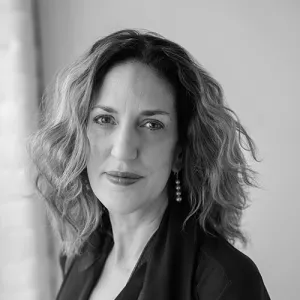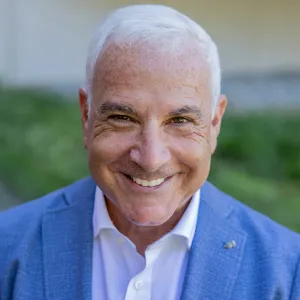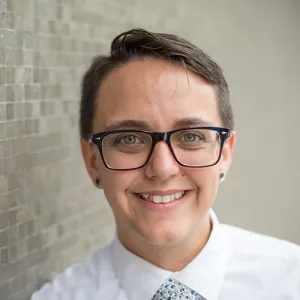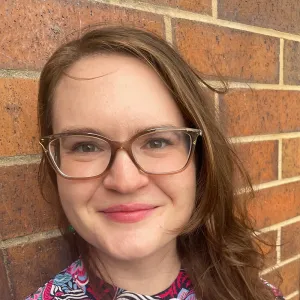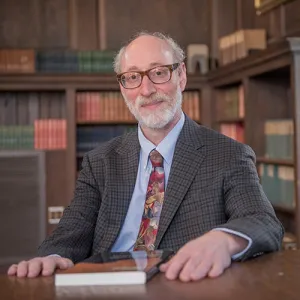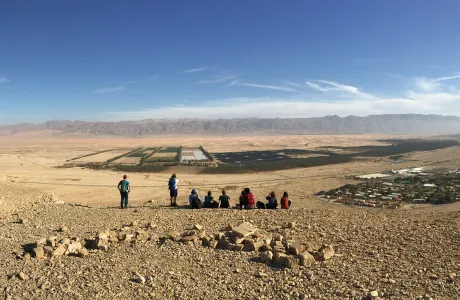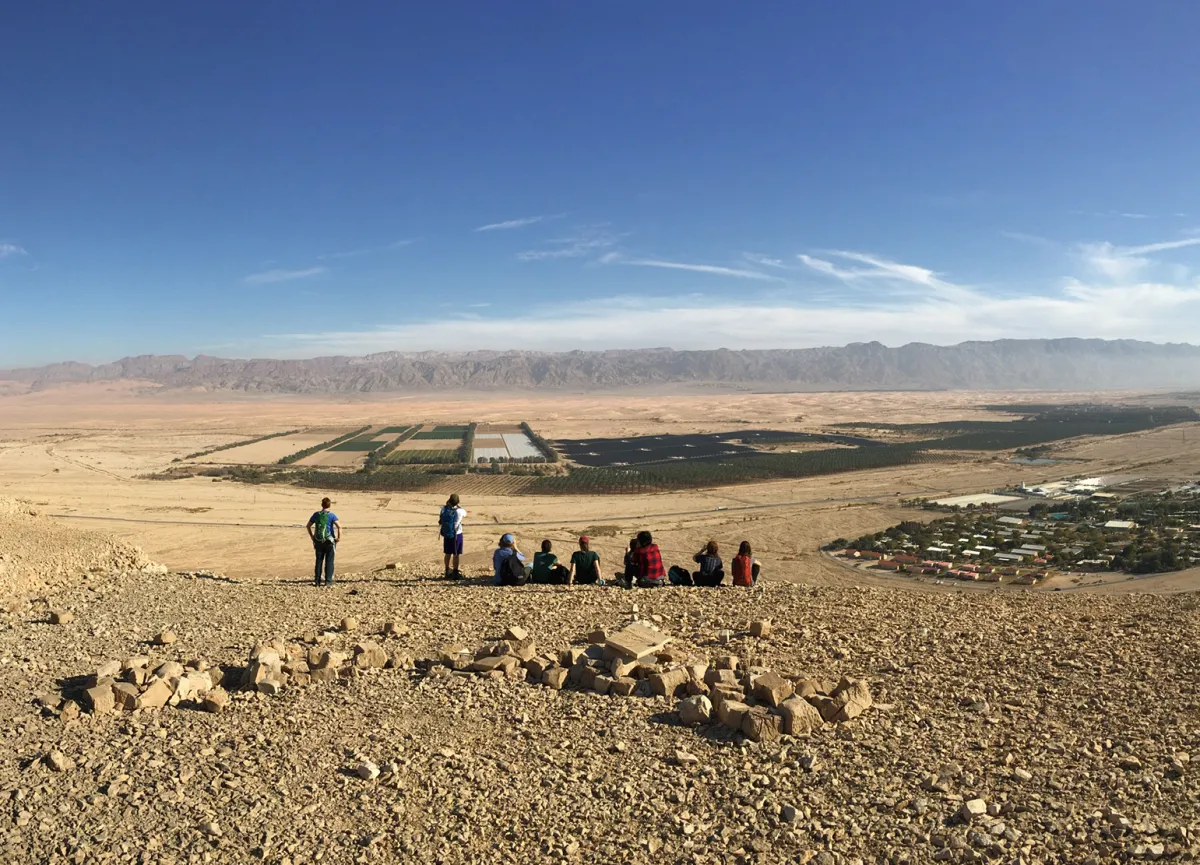
Jewish Studies
The program in Jewish studies at Smith College explores the history, literature, arts, politics, philosophy, culture, religion and languages of the Jewish people from its origins in ancient Israel through contact with major world civilizations over the course of a global diaspora extending more than two millennia. Jewish studies draws on the most important disciplines of the humanities and social sciences to provide an interdisciplinary understanding of the Jewish contribution to civilization. Students have opportunities to work closely with committed faculty in special studies at the advanced level, to develop close mentoring relationships and to expand their knowledge through study abroad. Many go on to pursue graduate studies in law, medicine, literature, history, religious studies, education, community service, and other professions.
Department Updates
Requirements & Courses
Goals for Majors in Jewish Studies
The Program in Jewish Studies expects students to graduate with an understanding of the religious, historical, political and cultural forces that have shaped Jewish civilization for more than 3,000 years. This includes the ability to:
- Frame questions and situate core texts and ideas in their appropriate intellectual, social and cultural contexts.
- Analyze and critique religious, historical, philosophical, political, literary and artistic texts, ideas and materials pertaining to Jewish experiences through the ages.
- Acquire knowledge of the diversity of Jewish culture through time and space, with a specific understanding of the interactions between Jews and co-territorial cultures, peoples, empires and states.
- Think about the ways in which Jewish studies contributes to, broadens and challenges important conceptual approaches in humanistic studies, engaging with questions related to such issues as nationalism and transnationalism, diaspora and globalization, multilingualism and translation, majority-minority relations, race, gender and sexuality, etc.
- Attain beginning competency in a Jewish language.
- Be confident thinkers, analysts and creators of culture.
Jewish Studies Major
Requirements
Ten semester courses
- Basis: JUD 125/ REL 125
- Language: JUD 101 and JUD 102
- Breadth: Six courses from at least three of the following categories: Language, The Bible, Religion and Thought, History and Politics, and Literature and the Arts. Students can expect advisers to work closely with them to select courses that cover the chronological sweep of Jewish civilization from biblical times to the present.
- Capstone: One seminar or research-intensive special studies
Additional Guidelines
- Students who arrive at Smith with the equivalent of a half-year of college-level Hebrew may petition for exemption from JUD 101. Those who arrive at Smith with the equivalent of a year of college-level Hebrew may petition for exemption from JUD 102 as well; in such cases, they are strongly encouraged to continue their study of Jewish languages. Exemption from JUD 101 or JUD 102 does not reduce the requirement to take ten semester courses for the major.
- No course counting toward the major shall be taken with the Satisfactory/Unsatisfactory grading option.
- Except for JUD 125/ REL 125, JUD 101 and JUD 102, no more than two courses at the 100 level shall count toward the major.
- Although JUD 102 is the minimum language requirement for the major, the Program strongly encourages students to continue study of Hebrew, and to do so at Smith when appropriate courses are available. A student may continue study of Hebrew, or of another Jewish language such as Yiddish, within the Five College Consortium or at an approved program elsewhere.
- Courses on Smith Programs Abroad or on other approved programs for study away may count toward the major. A student’s petition to count such courses must be approved by the major adviser and the Jewish studies program.
- With the approval of her adviser, a student may count one Smith College course from outside the approved list of Jewish studies courses toward the major, when that course offers a broader comparative framework for Jewish studies. In such a case, the student writes at least one of her assignments for the course on a Jewish studies topic.
Honors
Requirements
Eleven semester-courses, with JUD 430D counting for two of them. The thesis is written during the two semesters of a student’s senior year, and is followed by an oral examination.
To be admitted to the Honors Program, a student will normally have a 3.4 cumulative GPA through the junior year, demonstrate an ability to do independent work and have her thesis topic and application approved by the program by the requisite deadline.
For honors guidelines, please consult the Jewish studies website.
Jewish Studies Minor
Requirements:
Five courses
- JUD 125/ REL 125
- Four additional courses distributed over at least three of the following categories: Language, The Bible, Religion and Thought, History and Politics, and Literature and the Arts
Courses
JUD 101 Elementary Modern Hebrew I (5 Credits)
The first half of a two-semester sequence introducing modern Hebrew language and culture, with a focus on equal development of the four language skills: reading, writing, speaking and listening. Learning is amplified by use of online resources (YouTube, Facebook, newspapers) and examples from Hebrew song, television and film. No previous knowledge of modern Hebrew is necessary. This course is available to Mount Holyoke College students through a simultaneous video-conferencing option. Enrollment limited to 18.
Fall
JUD 102 Elementary Modern Hebrew II (5 Credits)
The second half of a two-semester sequence introducing modern Hebrew language and culture, with a focus on equal development of the four language skills: reading, writing, speaking and listening. By the end of the year, students are able to comprehend short and adapted literary and journalistic texts, describe themselves and their environment, and express their thoughts and opinions. Learning is amplified by use of online resources (YouTube, Facebook, newspapers) and examples from Hebrew song and television/film. Prerequisite: JUD 101 or equivalent. This course is available to Mount Holyoke College students through a simultaneous video-conferencing option. Enrollment limited to 18. Foreign Language
Spring
JUD 115 Topics in What Matters (1 Credit)
Topics course. Explores pressing questions at the heart of Jewish Studies from multiple theoretical, historical, political, cultural and artistic perspectives. S/U only. JUD 115 may be repeated with a different topic.
Fall, Spring, Variable
JUD 115as Topics in What Matters-Antisemitism (1 Credit)
Members of the Program in Jewish Studies and invited guests talk with students about forms of Jew-hatred. Analysis and criticism of related concepts, including peoplehood, religion, nationality, ethnicity, race, anti-Judaism, Aryan racism, Judaeophobia, White Supremacy and anti-Zionism. S/U only. JUD 115 may be repeated with a different topic. Historical Studies; Literature
Fall, Spring, Variable
JUD 115tt Topics in What Matters- Thinking Through Jewish Studies (1 Credit)
Members of the Program in Jewish Studies talk with students about how their research and teaching animates not only their interpretation of Jewish histories and cultures but also their understanding of contemporary events and their role as global citizens. S/U only. Historical Studies; Literature
Fall, Spring, Variable
JUD 125/ REL 125 The Jewish Tradition (4 Credits)
Offered as REL 125 and JUD 125. Who are the Jews? What is Judaism? How have Jews understood core ideas and texts, and put their values into practice, from biblical times until today? An interdisciplinary introduction to the dramatic story of Jewish civilization and its conversation with different cultures from religious, historical, political, philosophical, literary and cultural perspectives, organized around different themes. Historical Studies; Literature
Fall, Spring, Annually
JUD 214/ REL 214 Women in the Bible (4 Credits)
Offered as JUD 214 and REL 214. This course focuses on the characterization and lives of women in ancient Israel through close readings of the text. The course looks at depictions of various named and unnamed female biblical characters to illuminate the range of roles women occupied and the variety of ways the Bible viewed women. The course also explores women in biblical law, sex/gender in prophetic and wisdom literature, goddess worship in the ancient Near East and the female body as a source of metaphor. Historical Studies
Fall, Spring, Alternate Years
JUD 219 Midrash: The World of Rabbinic Interpretation (4 Credits)
This course explores the world of midrash, a genre of rabbinic biblical interpretation. In this course, students define the word midrash, speculate about the origins of midrash and learn about various midrashic genres and techniques. Students see how the creation of midrash allowed the rabbis to explore vital moral, theological and literary concerns in daring and imaginative ways. Ultimately, the study shows how the rabbis transformed their Bible, the TaNaKh, into a living document that had continued relevance in their own times and which continues to be relevant today. (E) Historical Studies; Literature
Fall, Spring, Alternate Years
JUD 223 The Modern Jewish Experience (4 Credits)
A thematic survey of Jewish history and thought from the 18th century to the present, examining Jews as a minority in the global diaspora. The course analyzes changing dynamics of integration and exclusion of Jews in various societies as well as diverse forms of Jewish religion, culture, and identity among Sephardic, Ashkenazic, and Mizrahi Jews. Readings include major philosophic, mystical, and political works in addition to primary sources on the lives of Jewish women and men, families and communities, and messianic and popular movements. The course also explores tensions between assimilation and cohesion, tradition and renewal, and history and memory. Historical Studies
Fall, Spring, Alternate Years
JUD 227 Women and Gender in Jewish History (4 Credits)
Previously REL 227. An exploration of Jewish women’s changing social roles, religious stances and cultural expressions in a variety of historical settings from ancient to modern times. How did Jewish women negotiate religious tradition, gender and cultural norms to fashion lives for themselves as individuals and as family and community members in diverse societies? Readings from a wide range of historical, religious, theoretical and literary works in order to address examples drawn from Biblical and rabbinic Judaism, medieval Islamic and Christian lands, modern Europe, America and the Middle East. Students' final projects involve archival work in the Sophia Smith Collection of Women's History. Social Science; Historical Studies
Fall, Spring, Variable
JUD 232 Magic (4 Credits)
Magic is often considered incompatible with normative religious practice. However, a close examination of Jewish experience reveals a lively magical tradition which understands the world to be teeming with supernatural and semi-divine forces that could be controlled through magical objects, rituals, and incantations. This course explores a wide variety of sources, from canonical religious texts to spells, recipes, magic manuals, folk beliefs, material artifacts, and faith healers and mystics. Careful attention is paid to the role of gender in the practice of and attitudes towards magic. Students learn about the diversity of magic practiced by Jews in different cultural contexts, the contested relationship between magical and mainstream Jewish practice, and magic as a point of interaction between Jewish and non-Jewish cultures. (E) Historical Studies; Literature
Fall, Alternate Years
JUD 235/ MES 235 Israeli-Palestinian Conflict (4 Credits)
Offered as JUD 235 and MES 235. What is in dispute between Israelis and Palestinians? What has prevented a resolution to the conflict, and why does it continue to arouse such regional and global passions? Considers key issues such as dueling national narratives and territorial claims, the status of Jerusalem, refugees, religious extremism and terrorism, security, international law, and the shifting role of regional and international players and activists. No prerequisites. Open to students at all levels interested in moving beyond the headlines. Social Science; Historical Studies
Fall, Spring, Alternate Years
JUD 260 Colloquium: Yiddish Literature and Culture (4 Credits)
Why did Yiddish, the everyday language of Jews in east Europe and beyond, so often find itself at the bloody crossroads of art and politics? From dybbuks and shlemiels to radicals and revolutionaries, the course explores Yiddish stories, drama, and film as sites for social activism, ethnic and gender performance, and artistic experimentation in Europe, the Soviet Union, and the Americas. How did post-Holocaust engagements with Yiddish memorialize a lost civilization and forge an imagined homeland defined by language and culture rather than borders? All texts in translation. No prerequisites. Enrollment limited to 18. Literature
Fall, Spring, Alternate Years
JUD 263 Colloquium: The Jewish Graphic Novel (4 Credits)
Traces the history of major antecedents to the graphic novel and related works, including illustrated books, journalistic cartoons, and comics and sequential art. Topics include Jewish secularism; Yiddish theatre and literature; comic strips; comic books; editorial and magazine cartoons; book, magazine, and other forms of illustration; and a range of Jewish graphic novels, primarily from the United States, Canada, and Israel, with some consideration of creators and publications from Europe and the Middle East. Arts; Literature
Spring
JUD 284 Colloquium: The Lost World of East European Jewry, 1750-1945 (4 Credits)
The modern history of the largest Jewish community in the world, from life under the Russian tsars until its extermination in World War II. Topics include Jewish political autonomy under the Polish-Lithuanian Commonwealth; the shifting effects on Jews in Russian, Soviet and Polish society of Partition, tsarist legislation, Revolution, Sovietization and the emergence of the modern nation-state; the folkways and domestic culture of Ashkenaz; competition between new forms of ecstatic religious expression and Jewish Enlightenment thought; the rise of mass politics (Zionism, Socialism, Diaspora Nationalism, Yiddishism) and the role of language (Yiddish, Hebrew, Russian, Polish) in the creation of secular Jewish identity; and the tension between memory and nostalgia in the aftermath of the Holocaust. Concludes with an analysis of the recently opened Museum of the History of Polish Jews in Warsaw. Enrollment limited to 18. Historical Studies
Fall, Spring, Variable
JUD 288 History of Israel (4 Credits)
Looking to make better sense of today's headlines? A historical survey of the State of Israel, from the 19th-century origins of Zionism to the present. Competing interpretations of Israel's political and cultural history through analysis of primary sources, literature and film, and debates over how history is written and by whom. Places discussions about Zionism and Israel within the broader histories of Judaism, Palestine, Europe and the Middle East. Open to students at all levels. Historical Studies
Fall, Spring, Variable
JUD 362jf Seminar: Topics in Jewish Studies-Judaism and Feminism (4 Credits)
How did the feminist movement impact Judaism and Jewish self-identity, and how and why did Jews play a formative role at key moments in feminist history? Discussions include feminist midrash, ritual innovation and contested issues such as divorce, women's religious leadership and LGBTQ Jews in religious law and practice. Experiential learning is emphasized through lectures from guest speakers, work in the Smith archives which houses the papers of several groundbreaking American (Jewish) feminists and visits to local sites. A prior course in Jewish Studies is helpful, but not required. Restrictions: Juniors and seniors only; JUD 362 may be repeated once with a different topic. Enrollment limited to 12. Instructor permission required. Social Science; Historical Studies
Fall, Spring, Variable
JUD 362yl Seminar: Topics in Jewish Studies-Yiddishland (4 Credits)
Explores the relationship between East European Jewish history and post-Holocaust and post-Communist memory through the prism of Yiddishland, the dream of a transnational homeland defined by language and culture rather than borders. The seminar includes a course field trip to Poland over March break. Restrictions: Juniors and seniors only; JUD 362 may be repeated once with a different topic. Enrollment limited to 12. Instructor permission required. Historical Studies; Literature
Spring, Variable
JUD 400 Special Studies (1-4 Credits)
Advanced research or language study, conducted by a faculty member in Jewish studies. Instructor permission required.
Fall, Spring
JUD 430D Honors Project (4 Credits)
Full-year course offered each year. Credits: 8 for year-long course. Department permission required.
Fall, Spring
Crosslisted Courses
ENG 230/ JUD 230 American Jewish Literature (4 Credits)
Offered as JUD 230 and ENG 230. Explores the significant contributions and challenges of Jewish writers and critics to American literature, broadly defined. Discussions include the American dream and its discontents; immigrant fiction; Yiddish in America; ethnic satire and humor; crises of the left involving 60s radicalism and Black-Jewish relations; after-effects of the Holocaust; and the novel as alternate history. Must Jewish writing remain on the margins, too ethnic for the mainstream yet insufficient for contemporary gatekeepers of diversity? No prerequisites. Historical Studies; Literature
Fall, Spring, Variable
FYS 117 The Bible and the American Public Square (4 Credits)
This course examines what the Bible (and to some extent the broader Jewish and Christian traditions) have to say about controversial issues that have divided Americans in the past (e.g., slavery) and present (e.g., abortion). The aim is to give students the skills to assess critically various arguments that invoke the Bible or religious tradition and authority, wherever they come from on the political spectrum. Students are introduced to the Bible and biblical scholarship, as well as learn about different understandings of biblical authority and views of applying the Bible to contemporary political and ethical debates. This course counts toward the Jewish studies and religion majors. Restrictions: First-years only; students are limited to one first-year seminar. Enrollment limited to 16. WI Historical Studies; Literature
Fall, Spring, Variable
HST 228/ JUD 228 The Jew in the Medieval World (4 Credits)
Offered as JUD 228 and HST 228. How does the medieval period influence or complicate contemporary understandings of race, religious cooperation and rivalry, and constructions of otherness? Explores intellectual and cultural cross-pollination in the Islamic Middle East and North Africa, the Iberian Peninsula, and Europe, including crises reflected in disputations, crusades, exile and murder. Open to students at all levels. Historical Studies; Literature
Fall, Spring, Variable
HST 243 Colloquium: Reconstructing Historical Communities (4 Credits)
How much can historians learn about the daily lives of the mass of the population in the past? Can a people’s history recapture the thoughts and deeds of subjects as well as rulers? Critical examination of attempts at total history from below for selected English and French locales. The class re-creates families, congregations, guilds and factions in a German town amid the religious controversy and political revolution of the 1840s. Enrollment limited to 18. Social Science; Historical Studies
Fall, Spring, Variable
HST 287/ JUD 287 The Holocaust (4 Credits)
Offered as JUD 287 and HST 287.The history of the Final Solution, from the role of European antisemitism and the origins of Nazi ideology to the implementation of a systematic program to annihilate European Jewry. How did Hitler establish a genocidal regime? How did Jews physically, culturally and theologically respond to this persecution? Historical Studies
Fall, Spring, Alternate Years
HST 355gw Seminar: Topics in Social History-Gender and the Aftermath of War in the Twentieth Century (4 Credits)
This course focuses on the work of reconstruction, recovery and memorialization in the aftermath of war and considers how that work interacted with gendered experience. Primary questions include: Was the aftermath of war as gender-specific as war experience itself? What role did women take in postwar recoveries? How was the aftermath of war reflected in cultural production through fiction, film and visual art in the twentieth century? Primary focus is on Europe, but students can expect to actively engage with the transnational effects and sources. Restrictions: Juniors and seniors only. Enrollment limited to 12. Instructor permission required. Social Science; Historical Studies
Fall, Spring, Variable
JUD 125/ REL 125 The Jewish Tradition (4 Credits)
Offered as REL 125 and JUD 125. Who are the Jews? What is Judaism? How have Jews understood core ideas and texts, and put their values into practice, from biblical times until today? An interdisciplinary introduction to the dramatic story of Jewish civilization and its conversation with different cultures from religious, historical, political, philosophical, literary and cultural perspectives, organized around different themes. Historical Studies; Literature
Fall, Spring, Annually
JUD 214/ REL 214 Women in the Bible (4 Credits)
Offered as JUD 214 and REL 214. This course focuses on the characterization and lives of women in ancient Israel through close readings of the text. The course looks at depictions of various named and unnamed female biblical characters to illuminate the range of roles women occupied and the variety of ways the Bible viewed women. The course also explores women in biblical law, sex/gender in prophetic and wisdom literature, goddess worship in the ancient Near East and the female body as a source of metaphor. Historical Studies
Fall, Spring, Alternate Years
JUD 223 The Modern Jewish Experience (4 Credits)
A thematic survey of Jewish history and thought from the 18th century to the present, examining Jews as a minority in the global diaspora. The course analyzes changing dynamics of integration and exclusion of Jews in various societies as well as diverse forms of Jewish religion, culture, and identity among Sephardic, Ashkenazic, and Mizrahi Jews. Readings include major philosophic, mystical, and political works in addition to primary sources on the lives of Jewish women and men, families and communities, and messianic and popular movements. The course also explores tensions between assimilation and cohesion, tradition and renewal, and history and memory. Historical Studies
Fall, Spring, Alternate Years
JUD 235/ MES 235 Israeli-Palestinian Conflict (4 Credits)
Offered as JUD 235 and MES 235. What is in dispute between Israelis and Palestinians? What has prevented a resolution to the conflict, and why does it continue to arouse such regional and global passions? Considers key issues such as dueling national narratives and territorial claims, the status of Jerusalem, refugees, religious extremism and terrorism, security, international law, and the shifting role of regional and international players and activists. No prerequisites. Open to students at all levels interested in moving beyond the headlines. Social Science; Historical Studies
Fall, Spring, Alternate Years
REL 110hl Colloquium: Topics in Thematic Studies in Religion- Jerusalem and Invention of the Holy Land (4 Credits)
This course examines the religious and historical legacy of the city of Jerusalem and the idea of "the Holy Land" in Judaism, Christianity and Islam. It explores the ways Jerusalem and the Holy Land have been sanctified in scripture, art, architecture, literature, poetry and film. It also explores how rulers have co-opted this sanctity to promote their own legitimacy and political agendas. The course considers Jerusalem and the Holy Land as a shared heritage the inspired co-existence and rivalry, as well as bloody conflicts, both in the past (e.g., the Crusades) and today (e.g., Israeli-Palestinian conflict.) Enrollment limited to 20. Historical Studies
Fall, Variable
REL 112 Introduction to the Bible I (4 Credits)
The Hebrew scriptures (Tanakh/Old Testament). A survey of the Hebrew Bible and its historical and cultural context. Critical reading and discussion of its narrative and legal components as well as an introduction to the prophetic corpus and selections from the wisdom literature. Historical Studies; Literature
Fall, Spring, Annually
REL 201 Colloquium-Ritual: Performance and Paradoxes (4 Credits)
A central feature of religious traditions and lived religious experience, ritual is often thought of as repetitive, unchanging and prescriptive. Yet, enacted rituals are often open-ended and allow considerable room for creativity and innovation. Through embodied action and symbolic drama, rituals serve complex functions of making meaning, deepening spirituality, performing cultural identity and advocating for social change. Students study various theories of ritual and examine ritual practices (religious and secular) in diverse traditions and societies. Enrollment limited to 20. Social Science; Historical Studies
Fall, Spring, Variable
REL 211 What Is the Good Life? (4 Credits)
How do you go about acquiring wisdom and leading a meaningful life? The Bible and related ancient texts have long inspired religious, philosophical and artistic answers to these questions. In this course, students explore how moral and ethical ideas expressed in wisdom literature such as Proverbs, Ecclesiastes, Job and Jesus' Sermon on the Mount, love poetry in the Song of Songs, and narratives such as Ruth, Esther and Tobit may inform our lives today. Literature
Fall, Spring, Alternate Years
REL 213 Social Justice in the Bible (4 Credits)
An exploration of biblical prophecy with a focus on how the prophets called for social and religious reform in language that continues to resonate today. Historical Studies; Literature
Fall, Spring, Alternate Years
REL 310is Seminar: Topics in the Hebrew Bible-Why Do the Innocent Suffer? (4 Credits)
Many biblical texts question whether God consistently rewards the righteous and punishes the wicked. Prominent examples include Job, Ecclesiastes and certain Psalms, but similar ideas occur in the Torah and the Prophets. While focusing most deeply on Job, this course introduces students to an array of biblical and ancient Near Eastern texts, as well as some post-biblical and even modern literature, to illuminate the Hebrew Bible’s discourse surrounding this issue. Restrictions: Juniors and seniors only. Enrollment limited to 12. Instructor permission required. Historical Studies; Literature
Fall, Spring, Variable
WLT 218 Holocaust Literature (4 Credits)
What is a Holocaust story? How does literature written in extremis in ghettos, death camps or in hiding differ from the vast post-war literature about the Holocaust? How to balance competing claims of individual and collective experience, the rights of the imagination and the pressures for historical accuracy? Selections from a variety of genres (diary, reportage, poetry, novel, graphic novel, memoir, film, monuments, museums) and critical theories of representation. All readings in translation. No prerequisites. Historical Studies; Literature
Fall, Spring, Alternate Years
WLT 277 Jewish Fiction (4 Credits)
What is the relationship between the homeless imagination and imagined homecomings, political upheaval and artistic revolution, the particularity of national experience and the universality of the Jew? Focuses on four masters of the 20th-century short story and novel: Franz Kafka’s enigmatic narratives of modern alienation; Isaac Babel’s bloody tales of Revolution; Isaac Bashevis Singer's Yiddish demons and Nobel prize laureate S. Y. Agnon's neo-religious parables of loss and redemption. All readings in translation; open to any student with a love of great literature. Literature
Spring, Variable
Additional Programmatic Information
For a full list of additional courses available through the Five College Consortium, explore the Five College course schedule.
The honors program is designed to enable qualified students to devote a substantial portion of their senior year’s course work to an extensive research project, culminating in the writing of a thesis and the completion of an oral examination. Students are expected to work within a field in which they already know the general literature and which Smith faculty can support. Interested students should consult the departmental honors section of the class deans website for complete information on applying for honors and for funding resources.
The program allows a student to prepare her honors thesis over two semesters (JUD 430D) for a total of 8 credits.
In recent years, Jewish Studies students have written honors theses on the following diverse topics:
- Encounters with Yiddish Paris
- Anticipatory Illuminations: The Performance of the Jewish Sabbath as Queer Futurity
- Grains of Wheat: A Play in Two Acts
- The Fiction of Rikuda Potash (translation and analysis)
- I am Supermentsh: Searching for the Jew in Comic Book Superheroes
- American Jewish Anti-Zionism: Historic Precedents, Intellectual Influences and Contemporary Consequences
- Post-vernacular Yiddish: A Case Study of the Yiddish Book Center
- Innovation Within Tradition: Halachic Egalitarianism and the Role of Independent Minyanim
Requirements for the Honors Major
Eleven semester courses, with JUD 430d counting for two of them.
Basic Requirements
Basis: JUD 125 Jewish Civilization, normally taken in a student’s first or second year.
Language: JUD 101 Elementary Modern Hebrew I and JUD 102 Elementary Modern Hebrew II. Students who arrive at Smith with the equivalent of a year of college-level Hebrew may petition for exemption from this requirement; in such cases, they are strongly encouraged to continue their study of Jewish languages. Exemption from JUD 101/102 does not reduce the requirement to take 10 semester courses for the major.
Breadth Requirement
Six further courses from the categories Language, The Bible and Classical Judaism, Religion and Thought, History and Politics, and Literature and the Arts. In keeping with the multidisciplinary character of Jewish studies, these six courses must include one or more courses from at least three of the following four categories: The Bible and Classical Judaism, Religion and Thought, History and Politics, and Literature and the Arts. Students can expect advisers to work closely with them to select courses that cover the chronological sweep of Jewish civilization from biblical times to the present.
Honors Capstone Requirement
The yearlong honors thesis project (JUD 430d) counting as two semester courses.
Additional Guidelines
- No course counting toward the major shall be taken for an S/U grade.
- In addition to JUD 101/102 and JUD 125, no more than two courses at the 100 level shall count toward the major.
- Although JUD 101/102 is the minimum language requirement for the major, the program strongly encourages students to continue study of Hebrew, and to do so at Smith when appropriate courses are available: JUD 200 Intermediate Modern Hebrew or JUD 201 Readings in Modern Hebrew Language; special studies in language. A student may continue her study of Hebrew, or of another Jewish language such as Yiddish, within the Five College Consortium or at an approved program elsewhere.
- Courses on junior year abroad programs or on other approved programs for study away may count toward the major. A student’s petition to count such courses must be approved by the major adviser and the Jewish studies program after the course has been completed.
- With the approval of her adviser, a student may count one Smith College course from outside the approved list of Jewish studies courses toward the major, when that course offers a broader comparative framework for Jewish studies. In such a case, the student writes at least one of her assignments for the course on a Jewish studies topic.
Requirements for Admission to Honors
A student majoring in Jewish studies who intends to submit an application for candidacy in the honors program should first meet with the director of honors in Jewish studies to obtain the application form and the college’s regulation sheet and to make sure that the procedures for admission are understood. Proposals are normally developed during the spring semester of the student’s junior year either by directly meeting with a potential thesis adviser or by clarifying the proposal via e–mail if the student is studying abroad.
To be admitted to the honors program a student must have a 3.4 cumulative GPA through her junior year, demonstrate the ability to do independent work and have her thesis proposal approved by the program by the requisite deadline.The achievement of the minimum GPA is no guarantee that a student's honors proposal will be accepted.
Advisers
A student should arrange to have one faculty member from the program serve as her thesis adviser. The thesis adviser is to supervise the planning, research, writing and evaluation of the thesis. Because the adviser and candidate will work closely together throughout the duration of the program, a student must make sure that her adviser will not be on leave or on sabbatical during the relevant semesters. In addition, students may suggest the names of other faculty whom they desire to act as readers for the thesis, although the program must approve the second reader.
Application Deadlines
Students are encouraged to submit proposals during the spring semester of junior year. The college’s deadline for application for honors is the third week of September (or the first week of February in the case of students completing their college studies in January). In order for the program to complete its review process, however, applications and proposals must be submitted to the director of honors no later than two weeks before the college’s deadline for applying to honors. Students who have not received approval for their projects by the end of the spring semester of their junior year must register for a four–course load for the following semester; if they are admitted to honors they can then drop one or two regular courses during the year and substitute honors.
The Proposal
In addition to completing the college’s application form, each student will submit a proposal for honors. The proposal should be approximately three double-spaced typed pages that explain the specifics of the project by outlining the following:
- What issues will be explored?
- Which historical eras, texts or thinkers will the project focus upon?
- What types of methods will be used?
An initial annotated bibliography including relevant primary and secondary sources should be appended to the proposal. The program may ask a student to rewrite her proposal and to submit it again, but this cannot be done after the college’s official deadline. All proposals should be developed under the supervision of a student’s potential thesis adviser. Proposals submitted at the last minute and without close consultation with a faculty member often fail to meet the research and scholarly specifications required to secure program approval.
The Thesis
The honors thesis is expected to be a mature and polished piece of undergraduate research. Though there is no minimum or maximum page limit for the thesis, normally they amount to at least 50 pages (double-spaced) and rarely exceed 80 pages.
Deadlines
Jewish studies follows the college deadlines for due dates. The final version of the thesis is due to the thesis adviser according to the final deadline set by the college. The date of the oral examination is set through negotiation between the honors candidate, the adviser and the program, and must take place on or before the final day of classes for the semester.
Grading
Honors work in Jewish studies will be evaluated in the following fashion:
- 60% for the written thesis
- 10% for the oral defense
- 30% for GPA in the Jewish studies major
Double majors
A student who is pursuing a major in Jewish studies and another department or program may want to develop an honors thesis project that integrates work from both majors. Please consult the director of honors for more information.
Please check the course catalog for up-to-date information.
Basis
- JUD 125/REL 125 The Jewish Tradition
- JUD 115 What Matters? (1 credit only, highly recommended but not required; students may take the course multiple times on different topics; this course does not count as one of the 10 full courses required for the major or minor)
Language
- JUD 101 Elementary Modern Hebrew 1 (fall)
- JUD 102 Elementary Modern Hebrew 2 (spring)
- JUD 200 Intermediate Modern Hebrew
- JUD 201 Readings in Modern Hebrew Language
Bible
- FYS 117 The Bible and the American Public Square
- REL 112 Introduction to the Bible I (Formerly REL 162)
- REL 211 What is the Good Life? Wisdom from the Bible
- REL 214 Women in the Bible
- REL 216 Archaeology and the Bible
- REL 310 Sibling Rivals: Israel and the Other in the Hebrew Bible
- REL 310 The Book of Judges
- REL 310 Why do the Innocent Suffer
Religion and Thought
-
JUD 217 Motherhood in Early Judaism
-
JUD 219 Midrash: The World of Rabbinic Interpretation
- JUD 229 Judaism and Environmentalism
- JUD 238 Sacred Space in Jewish Antiquity
- JUD 362 Judaism and Feminism
- REL 110 Colloquia: Thematic Studies of Religion: The Holy Land
- REL 221 Jewish Spirituality: Philosophers and Mystics
- REL 223 Jews and Modernity: A Global Diaspora
History and Politics
- HST 243 Reconstructing Historical Communities
- HST 246 Memory and History
- HST 350 Gender and Histories of the Holocaust
- JUD 223 The Modern Jewish Experience
- JUD 235 The Israeli-Palestinian Conflict
- JUD 255 20th Century European Thought
- JUD 284 Jewish Life in Eastern Europe, 1750-1945
- JUD 287 The Holocaust
- JUD 288 History of Israel
- JUD 362 Yiddishland
- MES 235 The Israeli-Palestinian Conflict
- REL 227 Women and Gender in Jewish History
- SPN 230 Maghribi Jewish Women
- SPN 245 Jewish Women of the Muslim Mediterranean
Literature and the Arts
- ENG 230 American Jewish Literature
- FYS 186 Israel: Texts and Contexts
- GER 231 Nazi Cinema
- JUD 110 Introduction to Yiddish
- JUD 239 Jewish Art
- JUD 260 Yiddish Literature and Culture
- JUD 263 The Jewish Graphic Novel
- JUD 362 Seminar in Jewish Studies
- SPN 246 Latin American Jewish Writers
- THE 208 American Musical Theater
- THE 241 Staging the Jew
- WLT 218 Holocaust Literature
- WLT 231 American Jewish Literature
- WLT 277 Modern Jewish Fiction
The Program in Jewish Studies encourages international study as a way to enhance knowledge of Jewish civilization. The following Smith-approved institutions offer courses in Jewish studies.
Study Abroad Adviser: Justin Cammy
Israel
Students planning to study for a year or semester at Smith-approved programs at The Hebrew University of Jerusalem or Tel Aviv University are reminded that international study guidelines require that students complete JUD 101 and 102 Elementary Modern Hebrew (or the equivalent of a full year of college-level elementary Hebrew) prior to departure.
Students who believe they already have the equivalent of JUD 101 and 102 will be required to take a Hebrew language proficiency exam administered by the Program in Jewish Studies to determine whether they have met the foreign language requirement set by Smith College.
The Office for International Study at Smith College recommends, but does not require, a full year of Hebrew or Arabic for students applying only to the Arava Program for Environmental Studies.
- The Hebrew University of Jerusalem
- Tel Aviv University
- The Arava Institute for Environmental Studies
Special waivers are required of students electing to study in Israel. Please contact the study abroad adviser and/or the Office for International Study for more information.
Europe
- Central European University — Bard Abroad in Vienna
- University of Cambridge, Jewish Studies in the Faculty of Divinity
- University College London, Department of Hebrew and Jewish Studies
- University of Oxford, Centre for Hebrew and Jewish Studies
- CET Prague
Canada
- University of Toronto, Jewish Studies Program
- McGill University, Department of Jewish Studies (Smith pre-approval may require French)
Australia
Students who wish to take summer courses abroad or domestically should follow the procedures for summer school credit available on the class deans website.
Yiddish Language Study
Students interested in Yiddish language, literature and culture are encouraged to attend one of the following programs.
- Yiddish Summer Program: Tel Aviv University
- Steiner Summer Yiddish Program National Yiddish Book Center, Amherst MA
- Uriel Weinreich Program in Yiddish Language, Literature, and Culture (YIVO Institute, NYC)
- International Summer Seminar Yiddish Language and Culture on Centre for Yiddish Culture (Poland)
Israel
Universities in Israel offer intensive summer programs for all levels of Hebrew language study, and courses in Jewish studies and Middle Eastern studies.
- The Hebrew University of Jerusalem (Hebrew University offers courses in classical and modern Hebrew, Arabic, Jewish Studies, Biblical Studies, Archeology, and Middle East Studies)
- Tel Aviv University (TAU offers summer courses in Hebrew, Arabic, Yiddish and Middle East)
- Haifa University (Courses in Hebrew and Arabic language, archeology and Israel studies)
Hebrew Language Study in the United States
There is very little financial aid available for students studying at domestic (U.S.) programs. Students planning to attend a program at an American institution should apply for financial aid at that institution and for assistance through the class deans office.
Summer Study Grants
- Program in Jewish Studies funding for the study of Jewish Languages
Students are eligible to apply to the Program in Jewish Studies for support of accredited summer language study in modern Hebrew, Biblical Hebrew, Yiddish and Ladino. The application is competitive and funding is limited. Please send an email to the director of the Program in Jewish Studies, Justin Cammy, with the following information: Name of program at which you plan to study; total cost of program (including airfare); confirmed sources of other funding; pending sources of other funding; a one page of explanation of how language study intersects with your scholarly program and an unofficial copy of your transcript. A letter of recommendation from a faculty member in support of your summer language studies should be sent directly to the program director no later than the deadline. Students are expected to have a minimum GPA of 3.30 at the time of application. - Leila Wilson Fund for the study of a Middle Eastern Language
- International Experience Grants (for study, research, internships, or volunteer opportunities)
- Praxis stipends for summer internships
Students who have studied Hebrew prior to coming to Smith should contact Joanna Caravita for advice on placement in the correct course level. Students with no previous knowledge of Hebrew may enroll in JUD 101, Elementary Modern Hebrew I.
Faculty
Emeriti
Research Affiliate
Asaf Galay (Tel Aviv and Northampton)
Smith Research Affiliate
Filmmaker and Curator
Jewish Studies provided me with the self-confidence to analyze complicated ideas and find my critical voice. I developed the skills to become a Fulbright scholar, pursue an M.A. in public policy, and ultimately have a career with the State Department as a presidential management fellow. The support of my professors was paramount to my success, and I owe a debt of gratitude to the college and Jewish studies for bringing me to where I am today.
Jewish Studies Abroad
Our program encourages international study as a way to enhance knowledge of Jewish civilization. Visit the Study Abroad website.

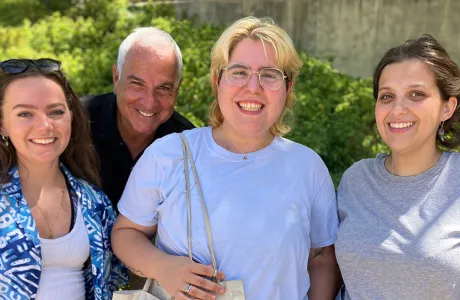
I learned Yiddish at some of the leading organizations in the world, and my honors thesis brought all my learning together in a project I could call my own. I went on to earn a master’s degree in library and information science and have since used what I learned in working with Jewish sources in my work at academic and public libraries.
Contact Jewish Studies
Dewey Hall 106
Smith College
Northampton, MA 01063
Phone: 413-585-3679
Chair: Darcy Buerkle
Administrative Coordinator: Lyndsay Lettre
Individual appointments can be arranged directly with the faculty.

